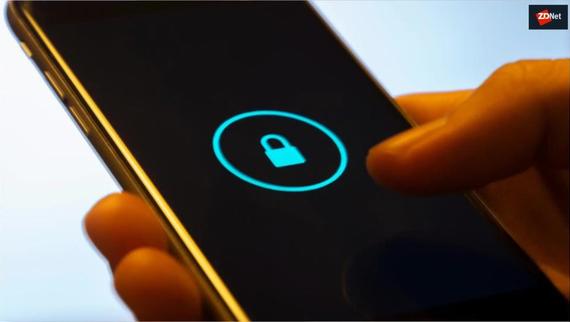A Virtual Private Network (VPN) is a technology that allows users to preserve their privacy, secure their personal information, and obtain anonymity over the internet. Bypassing a user’s internet traffic through VPN servers establishes a secure, private network connection to the internet. Check read the page on what is a VPN? to learn more about VPNs.
A VPN is an excellent way to safeguard your data, but it comes with certain disadvantages as well as advantages. If you’re thinking about buying a VPN service, you need first to learn about both sides. In this article, we’ll go through the true advantages and disadvantages of VPN services so you can decide whether or not they’re good for you.
What are the Advantages of a VPN?
There are various advantages to using a VPN. The advantages of using a VPN start with security and progress to a better user experience. Is it safe to not use a VPN, some readers may wonder? That relies depending on your location, digital activities, security requirements, and dependence on unsecured public Wi-Fi networks. The biggest advantage of utilizing a VPN is that you’ll always be better off with one than without one.
The following are the most common reasons individuals use a VPN:
1. Secure Connection for Remote Work
Today, more than ever, businesses must address internet security. With more employees working from home than ever before, valuable corporate and consumer information is increasingly vulnerable to theft.
Consider an employee who connects to a work computer on a public network without utilizing a VPN. Because the individual did nothing to disguise their information, anyone on that public network may theoretically acquire access to the internal corporate network.
Unrestricted access to company files and consumer data may be disastrous for a firm. When connecting to corporate networks through a VPN, important data might be masked behind the false information given by the VPN.
2. Cost-Effective Security
Every day, new “security solutions” emerge, yet the most up-to-date software and firewalls can be costly, and they may wind up generating more problems than they solve. By utilizing a VPN, you may avoid paying hefty licensing costs or monthly subscription rates. While a VPN does not screen for viruses or prevent attackers from connecting to your computer, it does eliminate the need for such functions by effectively making you invisible online. Outsiders seeking to get into your network do not need to be blocked since they believe your system is two thousand miles away in Jamaica.
3. Hides your private information
Any website you visit can see your true IP address if you aren’t using a VPN. To those who are unaware of the significance of this, an IP address may reveal a great deal about you that can be used against you. An IP address may expose your location, including your nation, city, ISP, and even zip code.
You leave a digital footprint when you use the internet. ISPs can keep track of this and sell the information to advertising in order to build a more accurate customer profile. They then serve you adverts based on your digital footprint. Your true IP address is masked when you use a VPN, which protects you from all of these threats.
Government surveillance agencies and ISPs will not be able to monitor what you do online by eavesdropping on your traffic, and online hackers will not be able to use your true IP address to find out personal information about you.
This not only helps you avoid government surveillance, but it also protects your privacy from advertisements. Remember that ISPs are free to sell user data to third-party advertising in the United States. If you’re not in the United States, this may not be a major problem, but bear in mind that you can’t be certain that your ISP and other marketers aren’t making shady agreements behind your back. Also, if you visit the United States as a tourist, this can happen to you.
4. Avoid bandwidth-throttling
Have you ever heard about bandwidth throttling? It’s when your Internet service provider (ISP) restricts your bandwidth, decreasing your internet speeds. They may do it on a regular basis or perhaps once a week or month. ISPs usually use this to improve their services by removing network congestion and ensuring that all customers have enough bandwidth.
However, businesses frequently utilize bandwidth throttling to “persuade” people (like you) to upgrade to more expensive subscriptions and data plans.
The good news is that your ISP won’t be able to see what you’re doing online because a VPN encrypts all of your Internet traffic. They won’t be able to tell if you’re wasting “too much” bandwidth by playing online games, downloading files, or watching TV shows. As a result, they won’t be able to limit your bandwidth for any of those activities.
What are the Disadvantages of a VPN?
The disadvantages of using a VPN service have less to do with VPNs themselves and more to do with possible hazards, poor deployment, and bad habits. Scalability, protection against modern cyberattacks, and performance are some of the primary issues with VPNs, particularly for enterprises.
Some of the disadvantages of a VPN can be listed below;
1. Slow Internet
Because a VPN reroutes and encrypts your internet connection through the VPN server, the speed of your connection may be reduced significantly. This is why, while trying out a new VPN provider, it’s crucial to evaluate your VPN speed.
Most internet users, though, will not notice the change. It may affect you if you’re doing something that consumes a lot of bandwidth or necessitates a speedier connection. For example, gamers who wish to play online multiplayer games should research the best VPNs for gaming to avoid experiencing slowness.
However, because VPN services are improving every day, this is becoming less of a concern. The majority of prominent VPN companies claim to have little connection speed degradation.
2. Illegal in Some Countries
Although VPN applications are allowed in the majority of nations, there are still a few areas where using one is either banned or limited.
The countries that ban or regulate VPN use are:
- Belarus
- China
- Iran
- Iraq
- North Korea
- Oman
- Russia
- Turkey
- Turkmenistan
- United Arab Emirates
3. Certain Websites Block VPN Users
There is a lot of stuff online that you can only access from inside a specific location, such as Netflix streaming services. These services prevent internet users from broadcasting content in countries where it is prohibited. This is due to agreements with movie distributors that limit the distribution of content to particular regions.
Other services that utilize region restriction, in addition to Netflix, include BBC iPlayer and HULU, for example. Meanwhile, some countries ban information that they believe is harmful to their ideals. In such instances, you can use a VPN to get around geographical restrictions. However, some businesses, companies, and governments try to intentionally ban VPN connections in addition to censoring internet content. This implies that even if you use a VPN, you may encounter issues.
This means that you may be blocked out even if you use a VPN.
Netflix simply bans IP addresses that use a large number of connections at the same time to access their service. Netflix can correctly guess when you’re using a VPN since VPN users share a server – and hence an IP address – which may be really frustrating if you just want to watch a movie. Similarly, several countries have begun to prohibit the use of recognized IP addresses linked with VPN companies.
Follow Technoroll for more!





